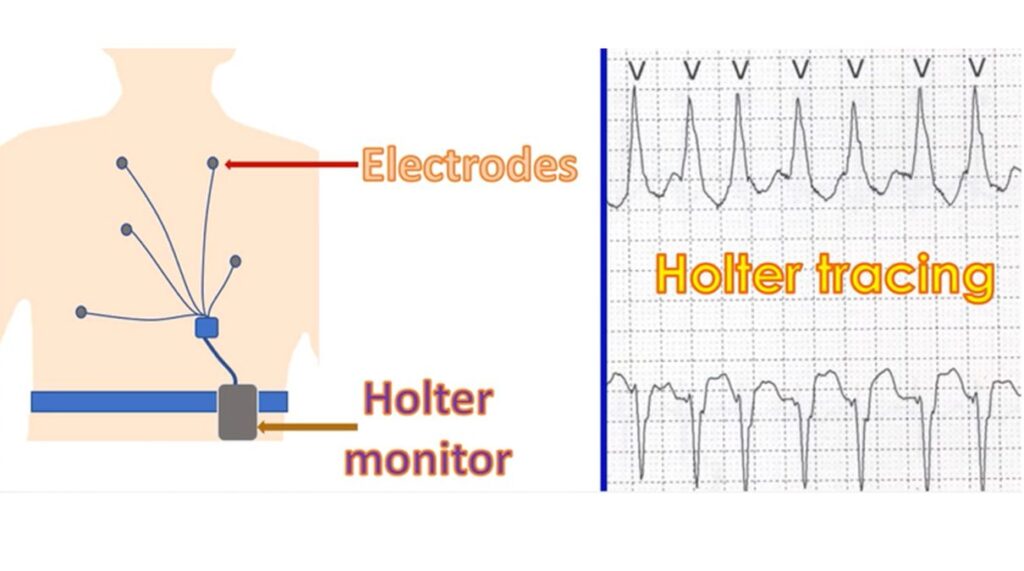What causes missed beats?
What causes missed beats?
There are several persons who come to a doctor saying that they are having missed beats after checking their own pulse. They feel a regular pulse for some time and an occasional pulse is missed. An occasional missed beat can occur in many normal individuals. Some note increased frequency after drinking coffee or other caffeinated drinks.
The commonest cause of a ‘missed beat’ is actually an extra beat originating from the lower chambers of the heart, known as ventricular premature complex (VPC). It is also called as ventricular premature beat or VPB. When the lower chambers of the heart (ventricles) contract prematurely, they do not have sufficient time to get filled well with blood after the previous contraction. This reduces the amount of blood being pumped out during the premature beat. The premature beat produces a weak pulse which may be missed or sometimes no pulse at all. This pause is felt by the person feeling the pulse.
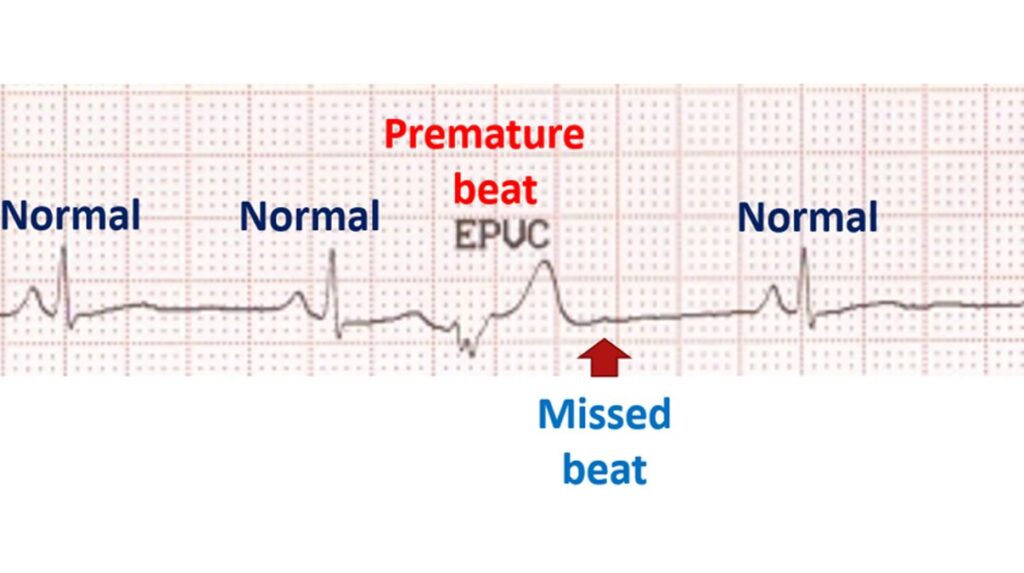
Along with the missed beat, some feel a forceful heart beat as well. The pause after a premature beat gives the ventricles more time to fill so that they have more blood than normal, at the beginning of the next contraction. This produces a more forceful contraction of the heart, which is felt by the person, while normal contractions are not felt by the person at all.
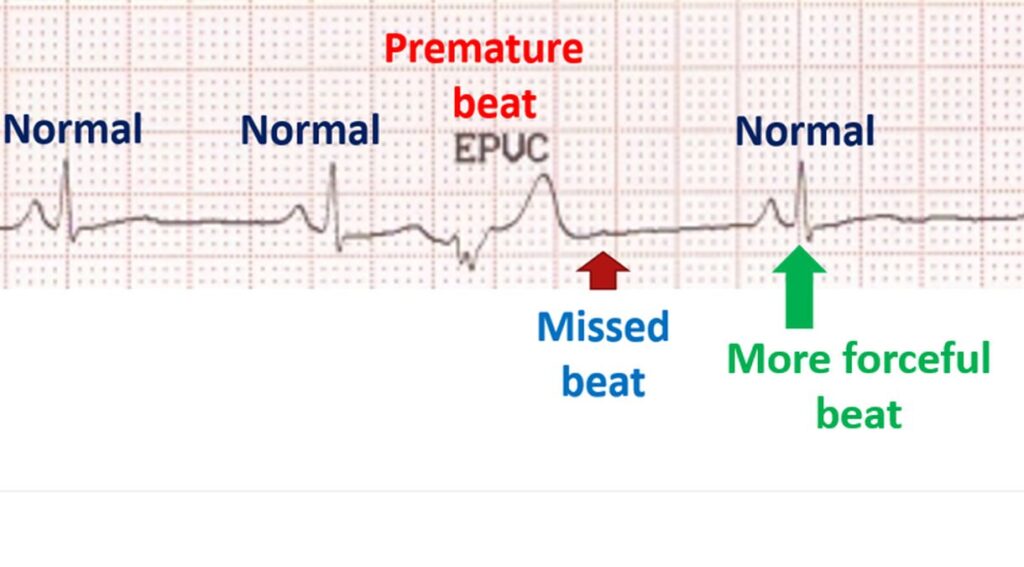
The premature beat can also arise from the upper chambers of the heart. Then it is called an atrial premature complex (APC) or as supraventricular ectopic (SVPC). Supraventricular means above the ventricles. Both VPC and SVPC can be documented by an ECG, the recording of the electrical activity of the heart from the body surface.
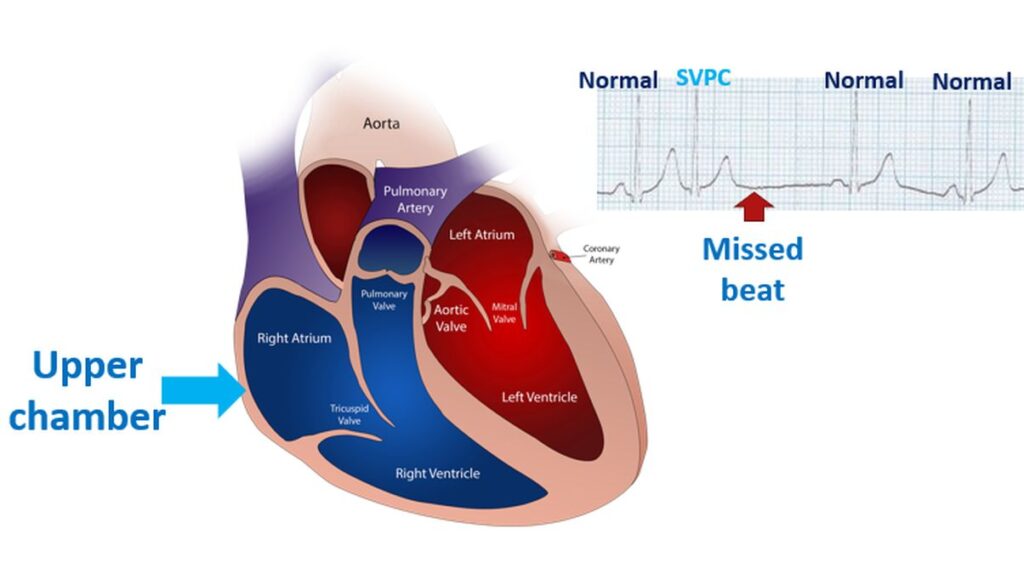
A few ectopic beats are usually of no significance. Ectopic beats disappearing with exercise are also usually insignificant. But if the frequency increases during exercise, it could be an indicator of underlying heart disease. If the abnormal beats occur continuously without normal beats in between, it could be risky.
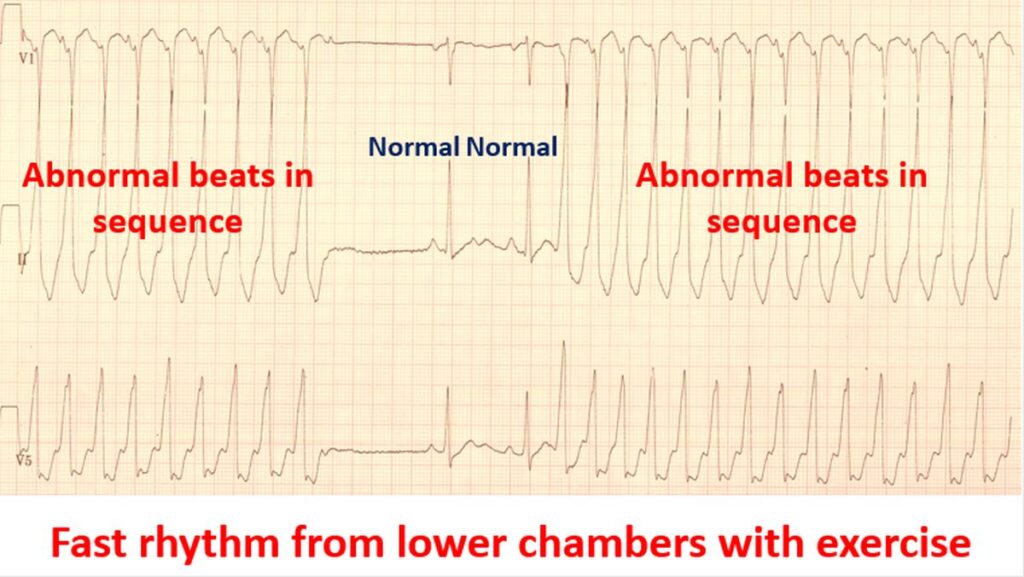
Ectopic beats are not the only reason for a missed beat. Sometimes the signals produced from the upper chambers may not get conducted fully to the lower chambers. This occurs usually in a condition known as atrioventricular block (AV block). If one pulse is missed for every three pulses, it means that the signal produced from the upper chamber at that time was not conducted to the lower chamber. This electrical block is different from the block in the blood vessel which causes a heart attack.
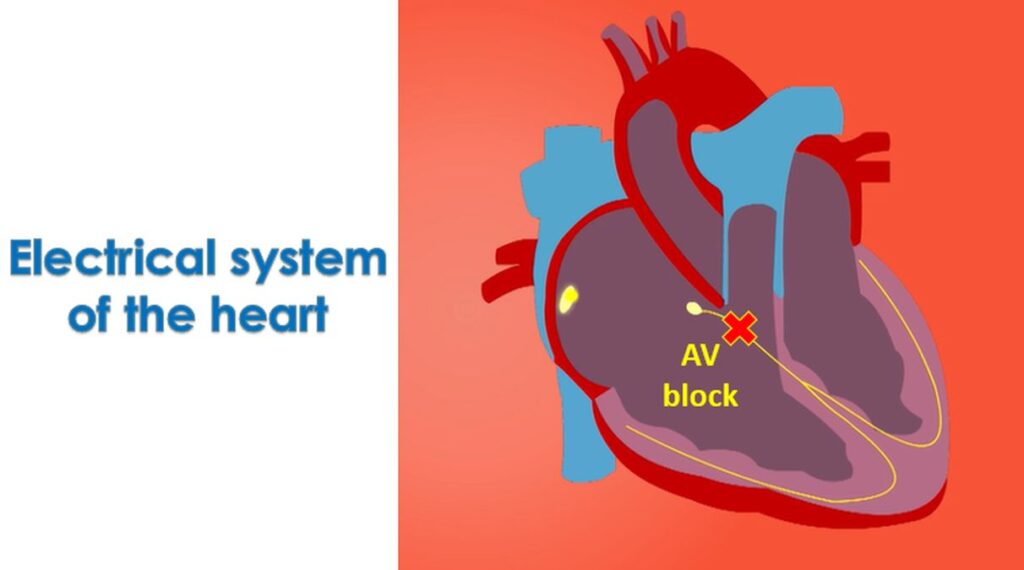
Sometimes blocks can occur at the junction between the sinus node which produces the signals and the upper chambers of the heart. Then it is called sinoatrial block. In another situation, the production of signals by the sinus node may also be skipped intermittently. All these can manifest as missed beats and can be identified on the ECG. But these varieties of missed beats are rarer than occasional ventricular ectopic beats. Yet they may indicate a more severe disease process.
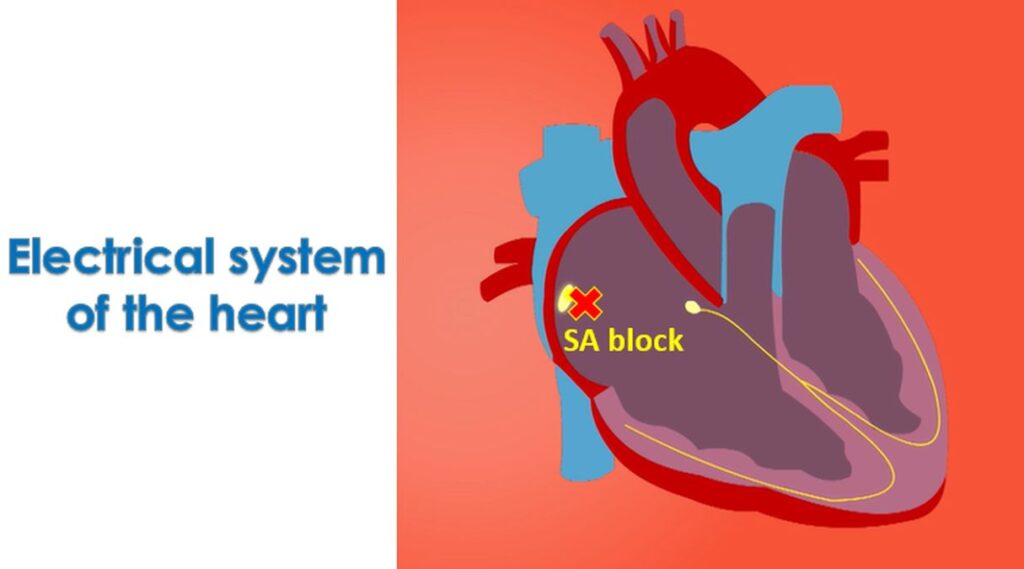
If the missed beat does not occur during the short period of ECG recording, a 24 hour or longer recording using a device known as Holter monitor worn on the belt can be used. The recording is analyzed by the computer software in the Holter analyzer and overseen by the technician and physician if needed. The analysis will give an estimate of the total number of abnormal beats and when all they are occurring. Correlation with symptoms if any and activities of daily life are possible by this method. Treatment can be decided better using Holter reports.
